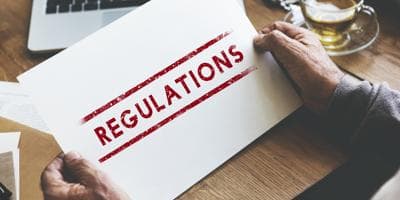FCC decides on call limit rules
The FCC responded to opposing petitions for reconsideration of its rules restricting calls that can be made without prior express consent. Here’s a recap.
These rules stem from the TCPA and the TRACED Act. Note that the calls under discussion are typically legitimate calls generated by organizations calling consumers using auto-dialers. These are not scam robocalls intended to defraud called victims.
TCPA
The TCPA prohibits telephone calls to any residential telephone line or cell phone using an artificial or prerecorded voice to deliver a message without the prior express consent of the called party.
The law also allows exemptions for certain types of calls.
TRACED Act
Section 8 of the TRACED Act requires that any TCPA exemptions granted by the FCC be specific in terms of callers, called parties, and call limits. Here are examples of specific restrictions the FCC instituted to comply:
| Exemption type | Specific limits |
|---|---|
| Non-commercial; Commercial, not telemarketing; Calls by tax-exempt nonprofit organizations | 3 artificial or prerecorded voice calls within any consecutive 30-day period |
| Package delivery company | 1 artificial or prerecorded voice call per package Max 2 artificial or prerecorded voice calls per package if a delivery signature is required |
| Inmate collect call service provider | 3 notification calls to establish a billing arrangement for inmate collect calls following an unsuccessful collect call |
| Financial institution | 3 artificial or prerecorded voice calls or text messages per event over a 3-day period for an affected account. Voice calls and text messages may be sent only to the wireless number provided by the customer. |
| HIPAA-related | 1 artificial or prerecorded voice call per day Max 3 artificial or prerecorded voice calls per week |
Each exemption type also provides other detailed requirements described here.
Petitions
ACA International (ACA) and Enterprise Communications Advocacy Coalition (ECAC) filed petitions for reconsideration of the FCC’s detailed requirements. There were also comments made by utility company advocates that led to a response in this ruling.
- Petitioners believed that the rules inadvertently imposed a written consent requirement to exceed the call limits. They asked that the Commission clarify that the rule only requires prior express consent, but this does not have to be in writing.
- Petitioners separately challenged specific call limits on a variety of grounds.
- There are inconsistent requirements for calls from utility companies to residential numbers versus calls to wireless numbers. Petitions asked that these be made consistent.
Decisions
In their declaratory ruling, the Commission issued the following decisions:
- The rules will be revised to permit callers to obtain express prior consent either orally or in writing.
- The numerical limits in the rules will remain as they are.
- Rules for calls from utility companies to their customers’ residential and wireless numbers will be made consistent.
It’s amazing how seemingly modest enhancements to calling rules can snowball into a complex, detailed list of requirements.

TransNexus solutions
TransNexus is a leader in developing innovative software to manage and protect telecommunications networks. The company has over 20 years’ experience in providing telecom software solutions including toll fraud prevention, robocall mitigation and prevention, TDoS prevention, analytics, routing, billing support, STIR/SHAKEN and SHAKEN certificate services.
Contact us today to learn more.
TransNexus has a comprehensive suite of robocall prevention solutions.
Learn more about robocall prevention